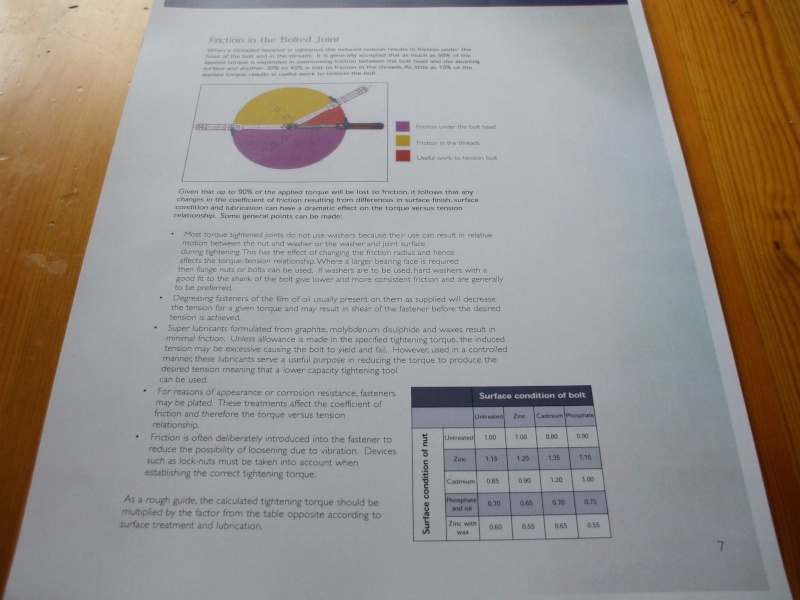In the mid seventies, working in a motor factors that sold tools, I was persuaded to buy a 'Proto' 1/2" sq drive torque wrench. It cost me nearly a weeks wages then (£12.75) but it came with a lifetime guarantee.
I still use it to this day and always set it to the exact torque setting specified, on the basis that the quoted percentile error allows for differing manufacturing tolerances between wrenches. I have always used the step up tightening method on things like cylinder heads because that is what is advised by the manufacturer but in truth, very little else. I don't think I have ever stripped a thread or had one loosen whilst using this torque wrench, despite owning a fair few Hondas

. I've always taken care of it and released the tension after use.
I recently had occasion to buy a 1/4" square drive torque wrench made by Draper and as my Proto has never been tested I had a little trial (unscientific) over a range of torque settings. Using one then the other to tighten a nut and bolt then setting the other torque wrench to the same value to see if it tightened any further or if I could significantly reduce the indicated setting to achieve the same tightness.
From the lowest setting of 10Nm's up to about to about 17-18, the Draper suggested that the Proto was slightly over-tightening and vice-versa. But I got absolutely no difference from 20nm's up to 70Nm's (the Draper has a max setting of 80Nm's).
Now whether or not I am actually achieving the pre-set torque on either wrench is a matter of opinion but I agree with Eastern-phoenix in that for the price that the average shed mechanic is paying, they provide consistency rather than absolute accuracy.


 Correct use of a Torque Wrench Fri May 03, 2013 1:27 pm
Correct use of a Torque Wrench Fri May 03, 2013 1:27 pm















 1988 K100RS SE/ABS
1988 K100RS SE/ABS




